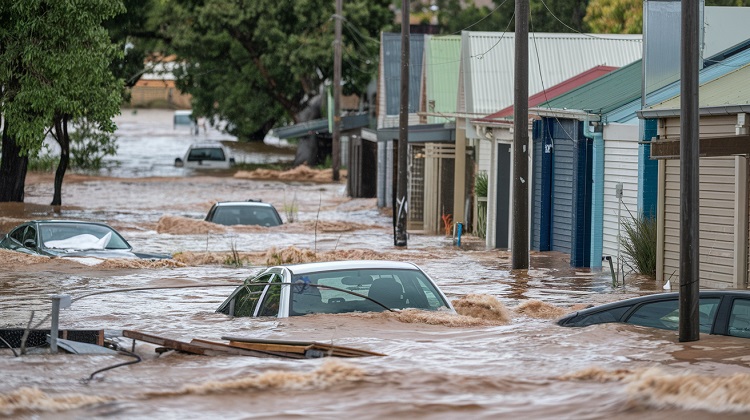New data has exposed a major decline in Australia’s education standards, as nearly half of all Year 10 students fail to meet benchmarks in Maths, Science and reading.
Australian Students’ Academic Performance Plummets: Shocking Revelations
Recent data from the Programme for International Student Assessment (PISA) has unveiled alarming revelations about the declining academic performance of Australian students. The PISA, conducted by the Organisation for Economic Co-operation and Development (OECD), has been monitoring academic achievement since 2000.
The latest results from the 2022 test indicate a troubling downward trajectory in numeracy and literacy comprehension levels among Australian students over the past two decades. This decline appears to be influenced by the pervasive use of technology, particularly social media and gaming.
Furthermore, Australia’s rankings in mathematics, reading, and science consistently fall behind Singapore. Despite being among the top ten countries globally in these subjects, a significant number of Australian students fail to meet the minimum standards, particularly in mathematics and English.
This article will delve into the impact of technology, inequality, and parental involvement on Australian students’ academic performance.
Key Takeaways
- Recent data from the PISA test shows a decline in Australian students’ numeracy and literacy comprehension levels over the past two decades.
- The use of technology, particularly social media and gaming, appears to be a contributing factor to the decline in academic success.
- Australian students’ performance in mathematics, reading, and science has worsened over time.
- There is a significant difference in performance between disadvantaged and wealthier students, particularly those in urban areas.
Declining Performance: PISA Test Results
According to the Programme for International Student Assessment (PISA) test results, Australian students’ academic performance has experienced a significant decline. Recent data from the PISA test, conducted by the Organisation for Economic Co-operation and Development (OECD), reveals a decline in Australian students’ numeracy and literacy comprehension levels over the past two decades.
Students who took the test in 2022 performed at a lower level compared to those who took the same test twenty years ago. The use of technology, particularly social media and gaming, appears to be a contributing factor to the decline in academic success.
Australian students’ performance in mathematics, reading, and science has worsened over time. These findings highlight the need to address the impact of technology and its role in students’ declining performance.
Impact of Technology on Academic Success
The role of technology in contributing to the decline of Australian students’ academic success has become increasingly evident over time. The survey has shown that students who spend more than three hours a day gaming are nine months behind in mathematics compared to non-gaming students.
The addictive nature of gaming and social media algorithms targeted at children is a concern raised by education experts. It is important for tech companies that create these addictive games and algorithms to take responsibility for their impact on students’ academic performance.
The use of technology, including gaming and social media, is a factor that needs to be considered in the decline of students’ performance. In addition, the increased reliance on technology in education due to the COVID-19 pandemic should also be taken into account when assessing its impact on academic success.
Ranking and Minimum Standards: Where Does Australia Stand
Despite ranking tenth in the world for mathematics and ninth for science and English, Australian students’ academic performance falls short of meeting minimum standards in these subjects. According to recent data from the Programme for International Student Assessment (PISA), half of the students in Australia failed to pass the minimum standards in mathematics, and 43% failed to pass the minimum standard for English.
While Australia’s ranking may appear favorable, it is important to note that this ranking during the COVID-19 pandemic may be misleading, as other countries fell behind, allowing Australia to move up. Additionally, there is a significant difference in performance between disadvantaged and wealthier students, particularly those in urban areas. Socioeconomic status plays a role in the achievement gap among students.
This highlights the need for addressing the issues of minimum standards and ensuring equal opportunities for all students to meet them.
Socioeconomic Inequality and Its Effects
Highlighting the detrimental effects of socioeconomic inequality, Australian students’ academic performance has been severely impacted. There is a clear achievement gap based on students’ socioeconomic status, with escalating gaps between advantaged and disadvantaged students. This gap is further exacerbated for students from remote communities, resulting in a significant disparity in achievement levels.
The gaps in achievement equate to 3-5 years of learning, highlighting the deep inequality within schools. Furthermore, parental involvement has been identified as a crucial factor in students’ academic success. Factors such as motivation, access to help at home, and parental involvement significantly contribute to a student’s performance in the classroom.
Addressing socioeconomic inequality and promoting parental involvement are essential steps in improving the academic outcomes of Australian students.
Parental Involvement and Academic Achievement
How does parental involvement impact academic achievement among Australian students? Parental involvement has been identified as a crucial factor in students’ academic success, according to teachers and experts. When parents are actively engaged in their children’s education, it can have a positive impact on their academic achievement.
Factors such as parental motivation, access to help at home, and involvement in school activities all contribute to a student’s performance in the classroom. Research has shown that students whose parents are involved in their education are more likely to have higher grades, better attendance, and improved behavior.
Furthermore, parental involvement can help bridge the achievement gap between advantaged and disadvantaged students. By working together with schools, parents can play a significant role in supporting their children’s academic journey and fostering a positive learning environment.
COVID-19’s Impact on Academic Performance
The COVID-19 pandemic has significantly impacted the academic performance of Australian students. The sudden shift to remote learning and the disruption of regular school routines have created challenges for students across the country.
With limited access to resources, technology, and support systems, students have struggled to adapt to the new learning environment. The lack of face-to-face interaction with teachers and peers has also hindered their academic progress.
The pandemic has also taken a toll on students’ mental health, further affecting their ability to focus and engage in their studies. As a result, there has been a noticeable decline in academic performance, particularly in areas such as numeracy, literacy, and critical thinking skills.
Addressing these challenges and providing adequate support to students will be crucial in mitigating the long-term impact of the pandemic on their education.
Addressing the Achievement Gap: Solutions and Recommendations
To address the achievement gap among Australian students, effective strategies and interventions are essential. Firstly, investing in early childhood education is crucial. High-quality early education programs have been proven to improve academic outcomes, particularly for disadvantaged students.
And targeted support should be provided to schools in low-income areas, ensuring they have access to resources, qualified teachers, and support staff. This includes implementing evidence-based interventions such as tutoring programs, mentoring initiatives, and extended learning opportunities.
Moreover, a focus on improving digital literacy skills is necessary to equip students with the necessary tools to navigate the digital world effectively. This involves incorporating technology into classroom instruction, providing professional development for teachers, and promoting responsible online behavior.
Lastly, fostering strong partnerships between schools, parents, and the community can enhance student engagement and academic success. Collaborative efforts should include regular communication, parent education programs, and involvement in school decision-making processes.
Albion News is a great place to find informative, up-to-date news articles. We provide a wide range of unique articles that offer an interesting perspective on current events from around the world and from various different sources. You can easily search for the topics that matter most to you and explore in-depth pieces that provide insight into the issues and important debates occurring today. Albion News helps you stay informed with carefully researched and credible stories!






